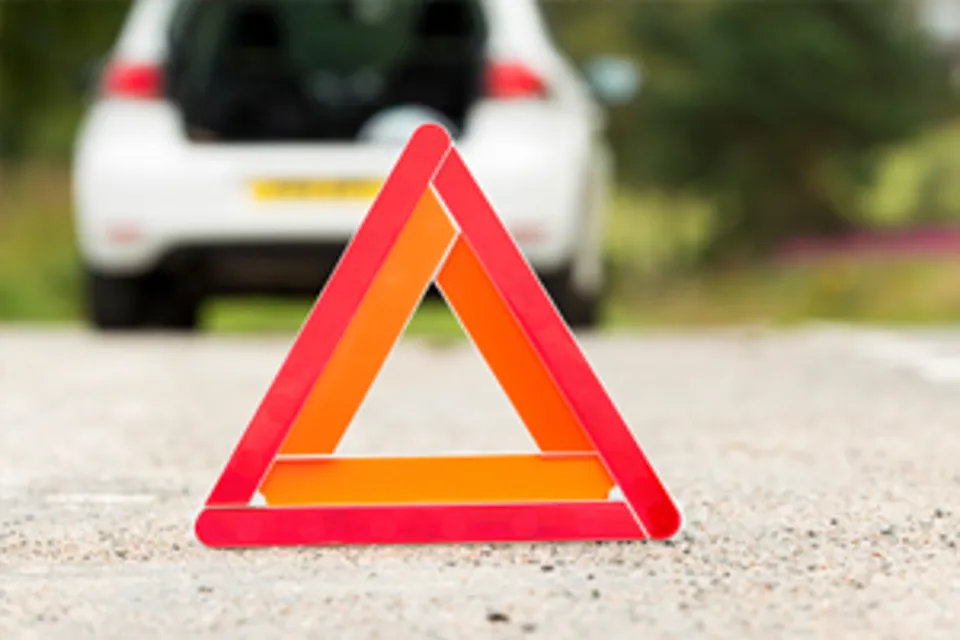Employers and the Government need to do more to ensure work-related road safety is given the same attention as general health and safety, according to a new report commissioned by Royal Society for the Prevention of Accidents (RoSPA).
RoSPA asked TRL (Transport Research Laboratory) and the Centre for Transport Studies at University College London (UCL) to examine the management of occupational road risk in the UK.
The report, which makes a number of recommendations, assesses the progress made in helping employers to manage the risks their staff face and create when they use the road for work purposes. It calls for the data on work-related driving risk to be improved, including better recording by the police and Health and Safety Executive, and for the effectiveness of different approaches to the management of occupational road risk to be properly evaluated.
However, the Government has ruled out making the reporting of work-related driving accidents part of RIDDOR (Reporting of Injuries, Diseases and Dangerous Occurances Regulations 2013).
Transport minister Robert Goodwill told Fleet News: “We’re not looking at incorporating road traffic accidents into RIDDOR. We already get police statistics fed into the DFT and I think we could be in danger of double-counting if we were also including that type of accident as accidents at work as well as road traffic accidents.
“I’ve not heard any compelling arguments as to why this would give us any better information of what’s happening.”
The RoSPA report also highlights how more work is needed into assessing the effectiveness of in-car data recorders and monitoring technologies.
Dr Shaun Helman, TRL head of transport psychology, said: “Work-related driving remains an important area for action if we are to sustain progress in reducing road injuries.
“Although some businesses are switched on to the issue, most of the time injuries sustained on the road are not afforded the same priority as injuries sustained on work premises and sites. This needs to change.”
Road deaths and serious injuries involving at-work drivers are one of the country’s most serious road safety issues.
Since 2006, 4,726 people have been killed and more than 40,000 seriously injured in collisions involving an at-work driver or rider, not including commuting.
That equates to almost 30% of road deaths and just over 22% of serious casualties involving at least one at-work driver or rider.
Kevin Clinton, head of road safety at RoSPA, said: “Injuries and deaths sustained from work-related driving remain a priority action point for both road and occupational safety.
“Up to one-third of road accidents involve someone who is using the road for work purposes.”
“This review further emphasises the need for the awareness of MORR (managing occupational road risk) to be raised and given the priority it deserves.”
Highlight benefits of work-related road risk management
The RoSPA review comes in the wake of a report from the European Transport Safety Council (ETSC).
Called The Business Case for Managing Road Risk at Work, it aims to persuade employers to invest in work-related road risk management (WRRRM) by highlighting the benefits it could bring.
The business case is centred on the prevention of harm to people and the protection of property and the environment.
It involves managing road safety in a proactive way for financial, moral and legal reasons with the aim of overseeing drivers, journeys and vehicles.
Any scheme, it says, should start by looking at the business case to influence a sustainable reduction in the numbers of people injured, traffic offences committed and assets damaged.
Convincing economic arguments
ETSC suggests there are convincing economic arguments for preparing and implementing a WRRRM programme.
“Historically, it has been common for organisations to focus attention on fleet safety only as a reactive response to being involved in a high-cost collision or death,” it says.
“This report strongly advocates taking a more proactive approach to work-related road safety as this will bring benefits in other areas such as quality, customer service, efficiency and environmental programmes and ‘getting things right first time’.”
For example, there are links between road safety and asset and fuel use through better journey planning and scheduling supported by defensive driving techniques.
This approach may reduce fuel efficiency and downtime due to improved work allocation and scheduling.
Other related positive effects are likely to be reduced wear and tear of vehicles and, consequently, higher residual values.
Clinton added: “RoSPA will lead a MORR stakeholder forum in the autumn to help develop an action plan.
“We will also be developing guidance for employers to help them evaluate the measures they have to manage their occupational road risks.”
> In November, Fleet News will hold its first ever road safety month, coinciding with Brake’s road safety week. Both issues of Fleet News will focus on safety and risk management.


















Ean @ Dtec - 18/07/2014 14:57
It is an excellent report on WRRRM and for the road safety week, let's hope the Home Office will have approved the DrugWipe police specification roadside screener by then, it may help companies operating fleets realise they can perform their own in-house drug and alcohol screening with world class equipment and achieve financial savings from fewer "unexplained" bumps and crashes as well as potentially saving lives.